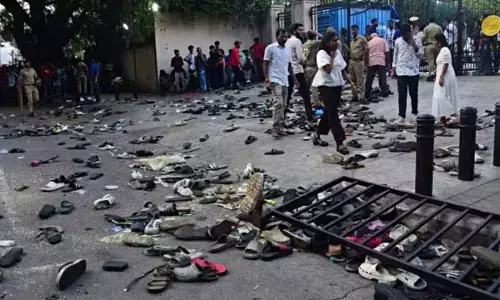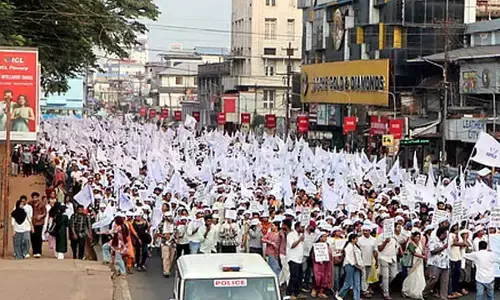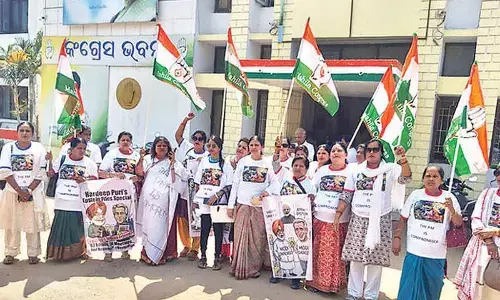Rag pickers dread monsoon diseases

Delhi citizens are eagerly awaiting the onset of the monsoon for a respite from the oppressive heat. However, for the tens of thousands of city rag picker
Delhi citizens are eagerly awaiting the onset of the monsoon for a respite from the oppressive heat. However, for the tens of thousands of city rag pickers - who play a major but unofficial role in the waste management chain - the rains bring a host of diseases like Hepatitis A and E, diarrhea, dysentery, typhoid and also dengue.
"The incidence of diarrheal disorders and hepatitis A and E increases during the monsoon. This is because the heat and humidity promotes bacterial and viral multiplication in the waste, which includes left-over food," Avnish Seth, director, gastroenterology and hepatobiliary sciences at Gurgaon's Fortis Memorial Research Institute (FMRI), told IANS.
.jpg)
Agreed M.K. Singh, consultant internal medicine at Paras Hospital, who said that monsoon was the most harmful season for ragpickers as it is when the maximum number of mosquitoes breed.
"Their entire workplace is actually a breeding ground of mosquitoes. The humidity further worsens the situation and causes a spurt in fungal infections and eczema," Singh told IANS.
Skin diseases include boils and fungal infections.
According to organisations working for their cause, in Delhi alone there are close to 50,000 rag pickers. Nationally, their number can be as high as 200,000, out of which 100,000 are children - below 18.
"As it is, they are malnourished. Rag pickers work barefoot and without gloves in an unhygienic environment full of contaminated material and sharp objects. Ingestion of bacteria and viruses because of dirty hands also lead to worm infestations, diarrhea, dysentery, typhoid and Hepatitis A and Hepatitis E," Seth explained.
Sudhano Mondal who has been working as a rag picker for the last 14 years, said that though he is aware of the hazards of working in a dump yard, he doesn't have an alternative.
"I often get acute stomach pain. I do not know what it is and just take whatever is available with my friends. I do not have money to go to a doctor," 24-year-old Mondal, who works at the Okhla landfill, told IANS.
"Yes, even I often suffer from diarrhea and acute stomach ache," 14-year-old ragpicker Murshida told IANS.
As they spend most hours of their day rummaging through filth and squalor, they are also prone to HIV, added experts.
"Handling of material contaminated with blood, like bandages and tampons, increases their risk of transmission of Hepatitis B,C and HIV. Among the
three, Hepatitis B is most prevalent as the virus is capable of surviving for days outside the body," said Seth.
Experts say that prevalence of Hepatitis B in rag pickers is up to 20 percent.
"Rag pickers, due to constant exposure to toxic waste and gases from filth and dumpsters, are prone to skin allergies, worm infestation and respiratory
diseases," Satish Koul, general physician at Gurgaon's Columbia Asia Hospital, told IANS.
Experts say that most of these disorders are preventable.
"We can start the ball rolling at our homes by segregating sharp objects and blood-stained bandages and tampons from the household waste," said Seth.
Ashish Bhanot, senior consultant gastroenterology surgeon at Nova Specialty Hospitals here, suggested that according to the disease, early treatment in the form of antibiotics should be started.
"They should also wear thick gloves and shoes, avoid wet items and get vaccinated against Hepatitis A, B, E, typhoid and tetanus," added Bhanot.
Experts say that government needs to organise regular camps for rag pickers to make them aware of the health problems they face.
"Government should register the rag pickers with some private establishments so that they are able to avail of ESI (Employees State Insurance Corporation) benefits. They should all be registered under the BPL (below poverty line) category and avail of facilities from the empanelled hospitals," Singh suggested.
Next Story










